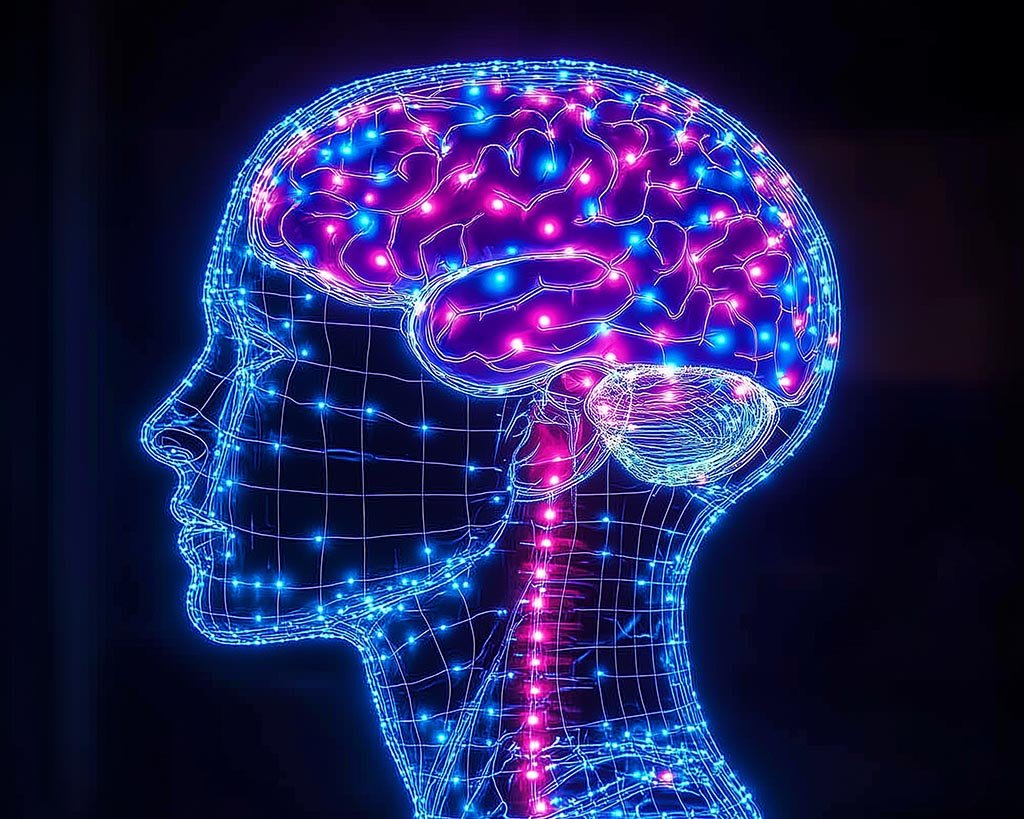A Pivotal Moment:
Imagine a world where AI can diagnose diseases with unparalleled accuracy, personalize education for each student, and even compose breathtaking symphonies. It’s a future brimming with possibilities, but also one fraught with ethical challenges. As Artificial Intelligence (AI) rapidly evolves, particularly with the rise of Large Language Models (LLMs), we find ourselves at a critical crossroads. How do we ensure that this powerful technology is developed responsibly, used ethically, and ultimately, serves the greater good?
The answer lies in a delicate balancing act – embracing the immense potential of AI while recognizing its inherent risks and establishing robust ethical frameworks to guide its development and deployment. It’s a conversation that involves everyone – tech giants, government agencies, researchers, developers, and ultimately, each and every one of us.
The stakes are high. The decisions we make today will shape the future of AI and its impact on our society. Will AI become a force for good, empowering us to solve some of humanity’s greatest challenges? Or will it become a tool for manipulation, discrimination, and societal upheaval? The path forward is not predetermined. It depends on our choices, our commitment to ethical development, and our willingness to engage in open, honest, and ongoing dialogue about the future of AI.
Ethical AI Development: The Cornerstones of Responsible Innovation
The foundation of ethical AI development lies in recognizing that AI is not merely a technological marvel but a powerful tool with the potential to shape our world profoundly. As we delve deeper into the realm of AI, it’s essential to ensure that its development and deployment are guided by ethical principles that prioritize human well-being, fairness, and transparency.
Here’s a glimpse into the key aspects of ethical AI development:
- Transparency and Explainability: AI systems should be transparent in their decision-making processes. Users should understand how these systems arrive at their conclusions, allowing for accountability and trust. Transparency is key to addressing concerns about bias, discrimination, and potential misuse of AI.
- Bias Mitigation and Fairness: AI systems should be designed to avoid bias, which can arise from the data they are trained on or the algorithms that govern their decision-making. It’s crucial to ensure that AI systems are fair and equitable, treating all users fairly, regardless of their background or characteristics.
- Data Privacy and Security: The data used to train AI systems must be collected and managed ethically, respecting individual privacy and ensuring data security. Stricter regulations and policies are needed to prevent data breaches, misuse of personal information, and the potential for unauthorized access to sensitive data.
- Accountability and Oversight: Clear lines of accountability need to be established for the development and deployment of AI systems. This means having mechanisms in place to identify and address any unintended consequences or ethical violations. Stronger oversight and regulatory frameworks are crucial to ensure that AI is used responsibly and ethically.
- Human Control and Oversight: AI systems should be designed to operate under human control and oversight, ensuring that humans retain the ultimate decision-making authority. This is particularly critical in areas like healthcare, finance, and law enforcement, where AI systems are used to make decisions with far-reaching consequences.
- Preventing Job Displacement and Promoting Equity: AI development must be mindful of its potential impact on the labor market. Efforts should be made to mitigate job displacement, provide opportunities for reskilling and retraining, and ensure that the benefits of AI are shared equitably across society.
- Safety and Security: AI systems should be designed with safety and security as top priorities. This includes mitigating risks associated with malicious use, cyberattacks, and unintended consequences that could harm individuals or society.
- Promoting Inclusivity and Accessibility: AI systems should be designed to be accessible and inclusive, ensuring that they can be used by people from diverse backgrounds and with different abilities.
- Continual Evaluation and Adaptation: Ethical considerations in AI development are not static. As technology evolves and our understanding of its implications deepens, it’s essential to have mechanisms in place for ongoing evaluation and adaptation.
- The “AI Ethics” Paradox: The more complex and powerful AI becomes, the more difficult it is to define and enforce clear ethical boundaries. This paradox underscores the importance of open dialogue, ongoing research, and a collaborative approach to address the ethical challenges of AI development.
The Debate Heats Up: Arguments for Stiffer Regulation
The call for stronger regulations for AI development is growing, driven by concerns about its potential to exacerbate existing inequalities, undermine privacy, and even threaten human autonomy. Advocates for stiffer regulation argue that:
- AI poses unique risks: The power and complexity of AI systems make them different from any previous technology. They can learn, adapt, and even evolve in ways that are difficult to predict or control. This necessitates a robust regulatory framework to address these risks and ensure responsible development.
- The need for proactive measures: Waiting for AI to cause harm before taking action is too late. Proactive regulations are essential to prevent potential dangers and safeguard the public interest.
- Protecting fundamental rights: AI systems can be used to discriminate, invade privacy, and even control human behavior. Strong regulations are necessary to protect fundamental rights, such as freedom of expression, privacy, and equality.
- Ensuring transparency and accountability: Stronger regulations can help increase transparency in AI development and deployment, making it easier to identify and address ethical issues and hold developers accountable for their actions.
- Preventing malicious use: AI can be misused for malicious purposes, such as creating deepfakes, manipulating public opinion, or even developing autonomous weapons systems. Stiffer regulations can help prevent such misuse and ensure that AI is used for good.
- Addressing algorithmic bias: AI systems can perpetuate and amplify existing biases, leading to unfair outcomes for certain groups. Regulation can help promote fairness and ensure that AI systems are designed to treat all users equitably.
The Case for More Lenient Regulation
While many advocate for stricter regulations, some argue that excessive oversight can stifle innovation and limit the potential benefits of AI. Proponents of more lenient regulation maintain that:
- Excessive regulation can stifle innovation: Imposing overly strict regulations can hinder the development of AI and slow down progress in areas like healthcare, education, and environmental sustainability.
- Self-regulation can be effective: Some believe that AI developers can effectively regulate themselves through ethical guidelines, industry best practices, and internal oversight mechanisms.
- The importance of experimentation and flexibility: The rapid evolution of AI technology requires flexibility and adaptability. Excessive regulation can stifle experimentation and innovation, hindering progress and potentially leading to missed opportunities.
- Concerns about overreach: There are concerns that overregulation could stifle creativity and innovation, leading to a more risk-averse and less dynamic AI landscape.
- The need for a balance: Finding the right balance between regulation and innovation is crucial. Regulations should be tailored to address specific risks and avoid unnecessary burdens on developers.
Beyond Regulation: Individual and Corporate Responsibility in the Age of AI
While regulations play a crucial role in establishing ethical frameworks for AI, individual and corporate responsibility are equally critical. It’s not just about government agencies setting rules; it’s about each of us making conscious choices and upholding ethical principles in our interactions with AI and its applications.
Here’s a closer look at the importance of individual and corporate responsibility in the age of AI:
- Individual Responsibility: As users and consumers of AI, we have a responsibility to be informed, critical, and discerning in our interactions with AI systems. We need to question the decisions AI systems make, challenge biases, and advocate for transparency and fairness.
- Corporate Responsibility: Tech companies and organizations developing and deploying AI systems have a significant responsibility to ensure that their technologies are ethical, unbiased, and used for good. This means investing in research, developing ethical guidelines, and implementing robust oversight mechanisms.
- The Importance of Ethical Education: A key step towards responsible AI development is promoting ethical education, encouraging critical thinking about the implications of AI, and equipping individuals with the tools they need to navigate the ethical challenges of this rapidly evolving technology.
The Future of AI: A Call for Collaboration and Continued Dialogue
The future of AI is a tapestry woven with threads of innovation, ethical dilemmas, and the need for ongoing dialogue. The path forward requires a collaborative effort, bringing together researchers, developers, policymakers, and the public to shape a future where AI empowers us to achieve a better tomorrow.
As AI continues to evolve, it’s vital to remain vigilant, question assumptions, and actively participate in the conversation about its development and deployment. The decisions we make today will shape the future of AI and its impact on our world. Let’s commit to building an ethical and responsible AI landscape that benefits humanity as a whole.
Let’s embrace the power of AI while ensuring it serves the greater good. Let’s work together to navigate this new frontier, keeping human values at the heart of every innovation.
Let’s create a future where AI is not a threat, but a powerful tool that enhances our lives and empowers us to create a brighter future. The future of AI is in our hands. Let’s make it a future we can all be proud of.





















+ There are no comments
Add yours